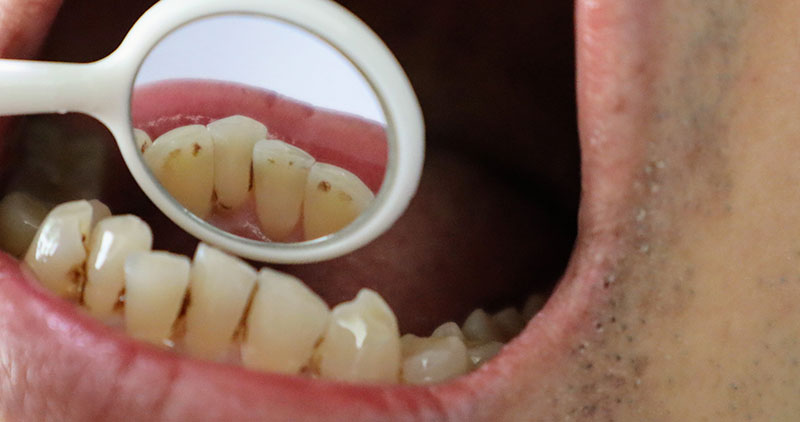Understanding Gum Disease: Causes, Symptoms and Prevention

Your gums are the foundation for a healthy smile. Unfortunately, periodontal disease, also known as gum disease, can quickly cause serious problems for your overall oral health. Here are some common stages, symptoms and causes of gum disease and ways to keep your mouth healthy.
4 Stages of Gum Disease
Gum disease is more than bad breath and yellow teeth. The progressive condition consists of four distinct stages, which can dramatically deteriorate your oral health as gum disease worsens.
- Gingivitis: In early onset phases of gum disease, plaque begins to build up on your teeth and gums. This leads to bad breath, inflammation and bleeding, but no permanent damage.
- Early Periodontitis: Inflammation worses, which affects the bone structure around your teeth.
- Moderate Periodontitis: Bone loss occurs, which leads to receding gum lines.
- Advanced Periodontitis: The worst stage of gum disease. At this point, connective tissue and severe bone loss can cause teeth to loosen or fall out.
Early Gum Disease Signs and Symptoms
Knowing the initial signs of gum disease is crucial to preventing progression. Look out for early symptoms such as:
- Swollen gums that bleed often, even with gentle brushing or flossing
- Pain or discomfort after consuming hot or cold food and drink
- Constant bad breath
- Gum recession, which makes your teeth look longer
- Loose teeth or visible changes in your smile
- Pus between your teeth and gums
Causes of Gum Disease
There are several causes of gum disease, including:
- Poor Oral Hygiene: Not brushing or flossing regularly will lead to plaque buildup, which is the main cause of gingivitis.
- Poor Nutrition: Diets that are weak in nutrients can compromise your immune system and even weaken your teeth and gums.
- Smoking: Smoking can weaken your body’s immune system, leaving you vulnerable to several illnesses.
- Hormone Changes: Women who experience monthly cycles, are in menopause or are pregnant may be susceptible to gum disease.
- Medications: Certain medications may reduce your saliva flow, which helps flush out harmful bacteria.
- Genetics and Family History: Some genes make people more likely to develop gum disease over time. Other conditions, such as diabetes, can also increase risk.
As gum disease progresses, it becomes significantly harder to treat. Therefore, the sooner you can detect and treat gum disease, the less of a risk you will face down the line.
Prevent Gum Disease with Orobitg Dentistry
While brushing twice a day, regularly flossing, eating a nutrient-rich diet and managing stress are all great ways to prevent early stages of periodontitis, the quickest and most effective way to catch and treat the development of gum disease is through regular checkups and teeth cleanings with your local dentist. If you’re in the Leesburg area, protect your smile by contacting your local Leesburg dentist, Eddie Orobitg, DMD. To schedule your appointment, call Dr. Orobitg today at 352-787-5919.
